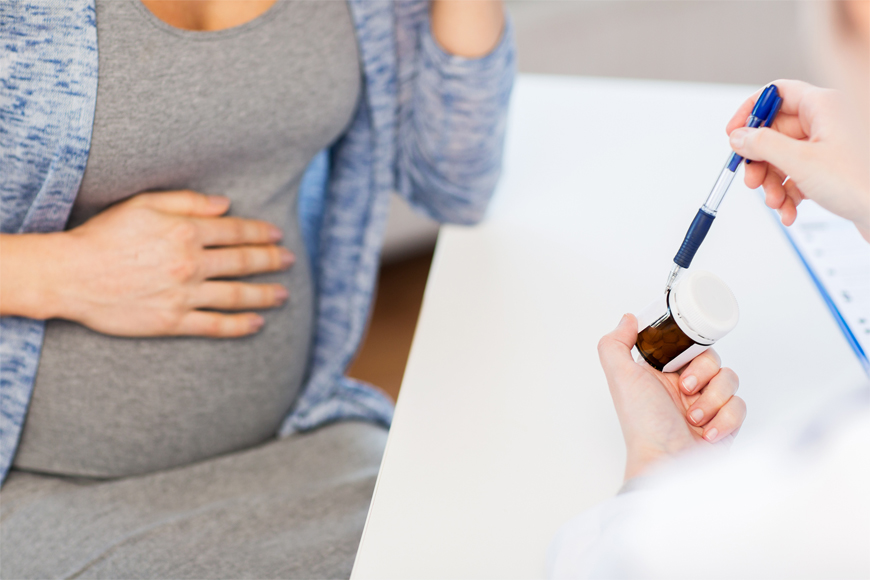Everything You Need To Know About Prenatal Vitamins
How they help, if they’re necessary and which ones you should take while pregnant....
7 October 2018
Lara

Growing a baby in your body requires all the nutrients and vitamins to help you grow a healthy and strong little one.
You’ve probably heard the term prenatal vitamins before but you’re not quite sure if it’s a good idea to take vitamin pills while you’re pregnant with your baby.
But it’s also hard to make sure you’re getting all your nutrients while pregnant let alone for your baby…just eating healthy food and engaging in light exercise isn’t enough to guarantee this.
SEE ALSO: Steps for a healthy plus-size pregnancy
Even if you eat a wide variety of foods including vegetables, fruits, meat, dairy products etc…your body needs twice the amount to keep you and your baby healthy.
Taking prenatal vitamins and supplements just act as a backup to make sure you’re getting the right amount of certain nutrients for a healthy pregnancy.
This is especially true if you’re on some sort of dietary restriction while pregnant i.e. vegetarian, vegan, lactose intolerant or just suffer from conditions like blood disorders, chronic diseases or vitamin deficiency.
Which prenatal supplements should I take?
The two most important vitamins you need to ensure you’re getting while pregnant are folic acid and iron because most pregnant women don’t get enough of them with just eating right.
Folic Acid
Folic acid, or vitamin B, is very important early on in your pregnancy – it reduces your baby’s risk of neural tube defects, such as spina bifida and anencephaly.
It also helps reduce the risk of other birth defects, including cleft clip, cleft palate and certain heart defects by up to 70% percent.
Your body better absorbs folic supplements than natural folic acid found in food, which is why it’s recommended to take the supplements as early in your pregnancy as you can.
If you’re too keen on not taking folic acid supplements, then opt to eat more of the following. However, it does not guarantee the right amount.
- Leafy greens (spinach, kale)
- Broccoli
- Avocado
- Beets
- Lentils, peas and beans
- Sunflower seeds, peanuts, flax seeds and almonds
Iron
Your body needs more iron when you’re pregnant than you may anticipate. Pregnant mothers need as much iron due to their body’s increased need during pregnancy.
And without iron supplements, the mother and child can get iron-deficiency anemia.
Therefore, not eating enough iron or not taking iron supplements can cause you to have a preterm delivery, cause your baby to have low birth weight and can cause infant mortality because the baby isn’t strong enough.
Other important vitamins
You should also make sure you’re receiving enough Calcium, fatty acids and vitamin D during your pregnancy.
- Vitamin C helps your baby grow strong bones, teeth, healthy nerves and muscles.
- Fatty acids (Omega 3) helps your baby’s brain, nerve and eye tissue
SEE ALSO: How a fish rich diet can help your baby’s development
- Vitamin D helps your baby build strong bones, teeth and helps maintain healthy levels of calcium and phosphorus
When should I start taking prenatal vitamins?
Ideally, you should start taking prenatal vitamins as soon as you find out you’re pregnant – but you should start as early on in your pregnancy for the healthiest results.
Especially folic acid, which is very important in the earliest phases of your pregnancy.
SEE ALSO: Tips to ease swelling during pregnancy
Also, if you’re planning on having a family, taking vitamins early on in your planning phase can also help your chances of conceiving.

























.png?itok=SvZPqMHH)




.png?itok=uB2ieOR7)












